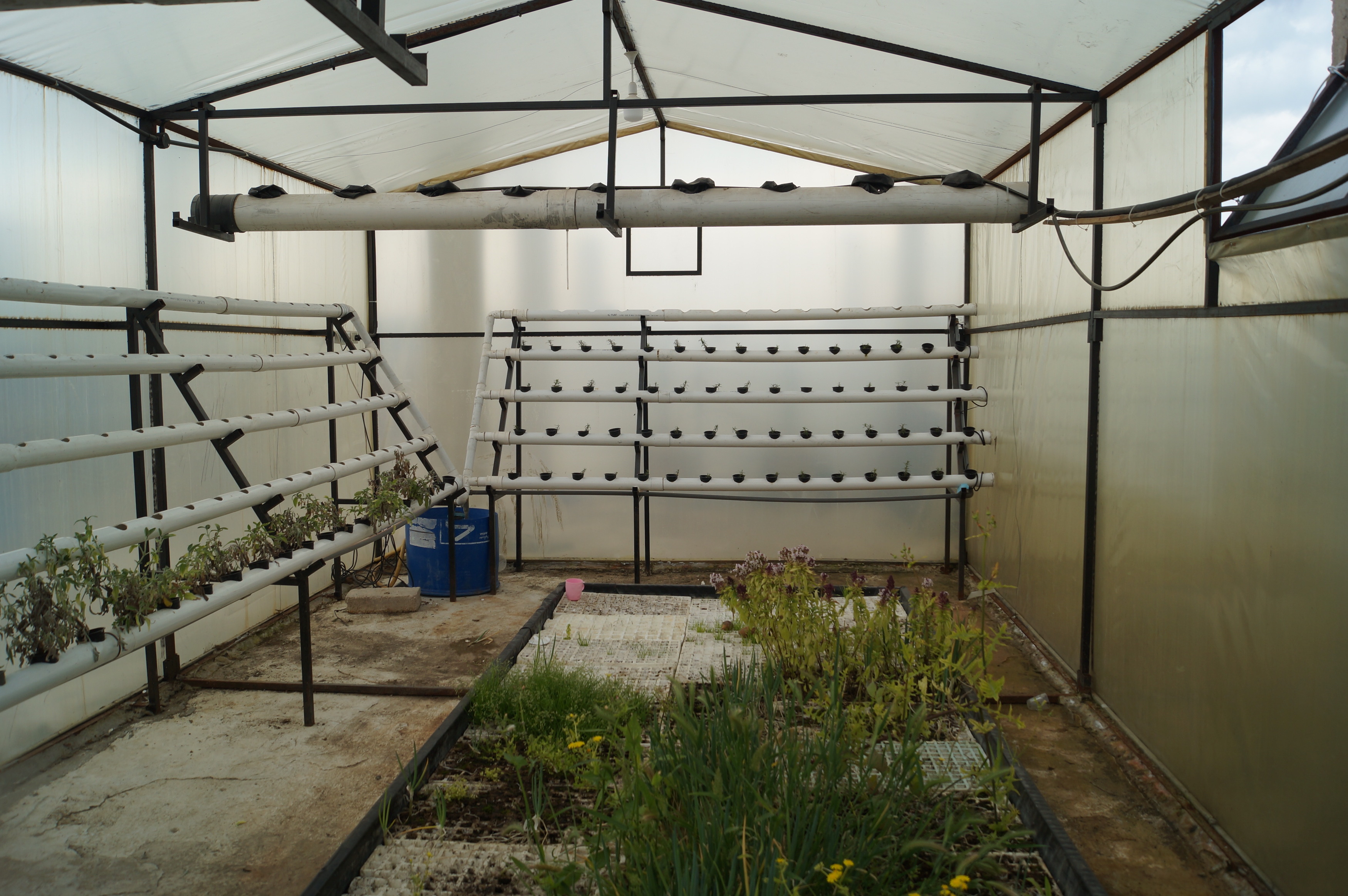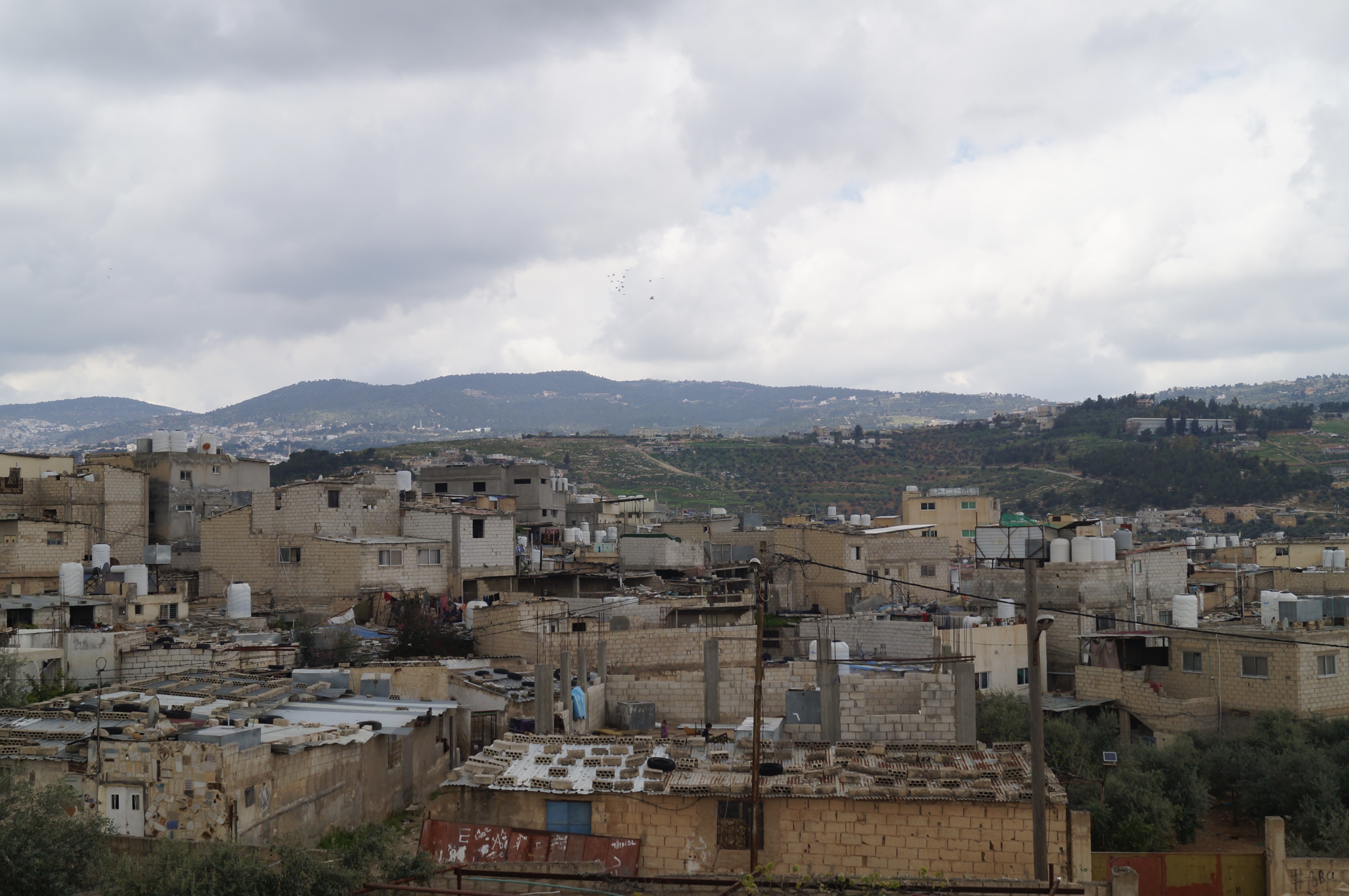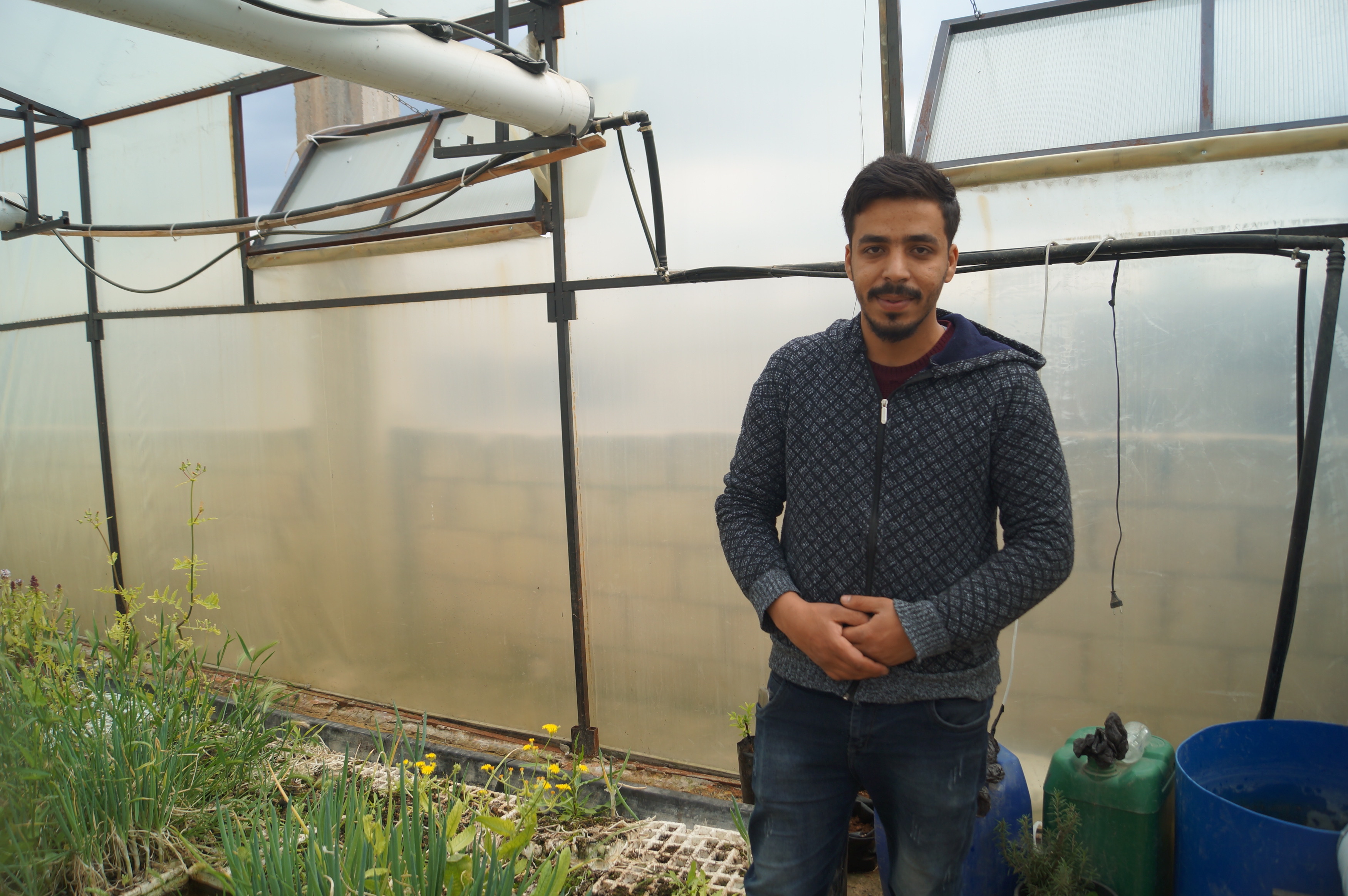AMMAN: At Jordan’s Jerash Camp for refugees, 24-year-old Idris Abu Saleh says he frequently finds news reporters at his door eager to take photographs of his famed homemade hydroponic greenhouse.
This 32-square-meter plastic structure, which sits on his rooftop in the worn down encampment, is celebrated as a story of Palestinian resilience and sustainable entrepreneurship.

The outside of Idris Abu Saleh's homemade hydroponic greenhouse which is built on his rooftoop in Jerash refugee camp, Jordan. (AN Photo/Tamara Turki)
“I got the idea to start this project during the pandemic, when I had a lot of free time on my hands,” Abu Saleh told Arab News.
After months of researching on the internet, the pharmacist began experimenting with aquaponics, a type of agriculture that combines fish farming in tanks with soilless plant cultivation.
Its success paved the way for his foray into hydroponic farming, which uses only a fraction of the water that traditional agriculture does.
According to UNICEF, Jordan’s annual renewable water per person is under 100 cubic meters, well below the 500-cubic-meter threshold indicating severe water scarcity.
Recognizing the project’s potential to mitigate climate change risks through sustainable natural resource management, the UN Development Program awarded Abu Saleh a grant to construct a 32-square-meter greenhouse.

The inside of Idris Abu Saleh's hydroponic greenhouse. (AN Photo/Tamara Turki)
Using a water-based nutrient solution rather than soil, here he grows strawberries, green onions, red lettuce and herbs like sage, basil and rosemary.
He sells his produce in his brother’s camp market store and to local restaurants, becoming a critical source of income for the family.
Due to their non-citizen status, Palestinian refugees in Jordan face legal restrictions that limit their access to employment opportunities.
However, Abu Saleh, who was unable to find a job after graduation, said: “I want people to know that working isn’t shameful. Whatever opportunity you can find, whatever blessing you are given, take it no matter what. You don’t have to have a degree, or for it to have been something you have studied.”

Green onions are harvested four times a year at the greenhouse. (AN Photo/Tamara Turki)
His hydroponic farm yields vary; onions, for example, are harvested four times a year, each cycle bringing in 70 to 100 kilograms and netting profits between 50 to 120 dinars ($70 to $169).
Red lettuces, with 210 planted per cycle, offer a 40-day turnaround for an average profit of 63 dinars. Yet, seasonal demand fluctuations have challenged his earnings stability.
“For example, as the weather gets warmer, people stop buying green onions, it’s more of a winter vegetable. So I try to see what I can grow and sell that is in season but it’s not going to earn me as much as selling onions,” Abu Saleh said.
According to UNICEF in 2021, Jerash Camp, locally known as “Gaza Camp,” is the poorest of the 10 Palestine refugee camps in Jordan, with the majority of households falling below the poverty threshold.

The view from Abu Saleh's rooftoop overlooking Jerash camp, located 50 km from Jordan's capital. (AN Photo/Tamara Turki)
Abu Saleh’s affordable produce becomes particularly significant during Ramadan. Despite increased expenses of preparing larger meals to break fasts, his direct-from-source sales model ensures lower prices compared to traditional supermarkets.
He mentioned that during the holy month, his produce sells three times faster than usual.
This Ramadan, however, the camp’s atmosphere is somber with the toll of Israel’s brutal war on the Gaza Strip. Over 90 percent of the refugee population in the camp were expelled from the enclave during the 1960s. Many still had relatives in Gaza who have been killed over the last six months.
The humanitarian catastrophe in the Gaza Strip has redirected much of the charitable donations typically seen by Jerash Camp during Ramadan, exacerbating the hardships faced by these refugees.

24-year-old Palestinian refugee Idris Abu Saleh. (AN Photo/Tamara Turki)
Entrepreneurial initiatives, such as Abu Saleh’s greenhouse, have become a critical financial lifeline for the community.
“The greenhouse has also been intrinsically reward, I’ve learned so much from this experience. I hope one day, when I can afford it, to pursue a master’s degree in traditional agriculture, hydroponics, and medicinal herbs,” Abu Saleh said.
He also hopes to also expand his greenhouse so he can grow more produce.


























